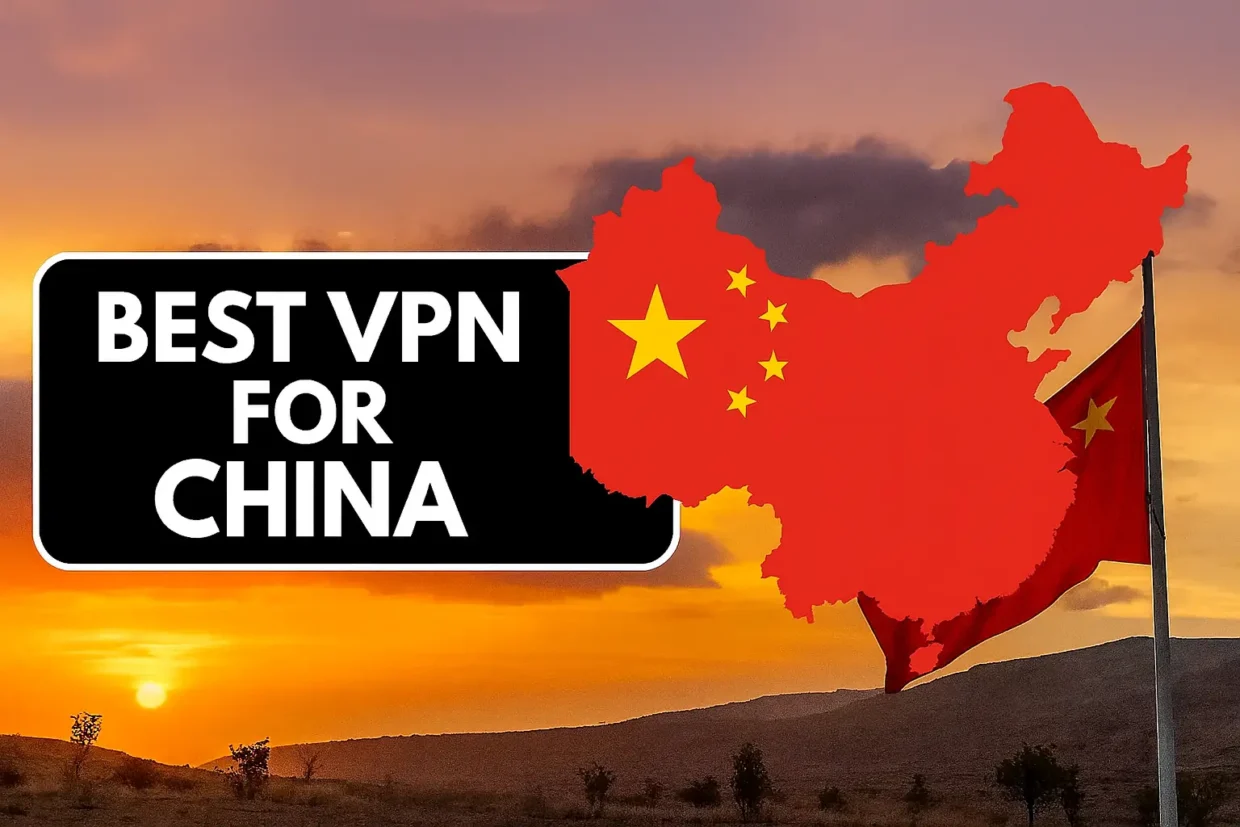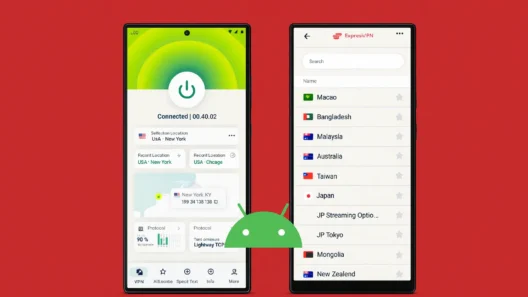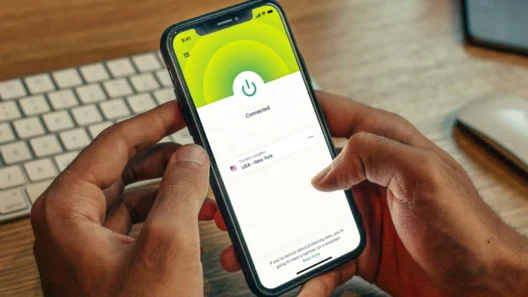Picture this: you just landed in Shanghai, coffee in hand, ready to post that perfect airport selfie to Instagram, check your Gmail, and grab an Uber to your hotel. And then… nothing works. Your apps keep spinning, your browser returns error pages, and Google? Forget it—it’s like it never existed. Welcome to the infamous Great Firewall of China, the digital maze that can turn your smartphone into a glorified alarm clock.
Anyone who’s spent time in China knows this isn’t just about being unable to check TikTok or binge Netflix on hotel Wi-Fi. The Great Firewall is a living, breathing beast that actively hunts down and blocks your favorite social apps, messaging tools, and news sites. If you’re not ready, you’ll feel cut off not just from memes, but from the outside world itself.
What Happens Online When You Land in China (The Digital Shock Explained)
The good news: with the right VPN—and, trust me, not all VPNs are up for this fight—you can slice through the firewall like a hot knife through butter. But only three VPNs consistently stand up to the Great Firewall’s shenanigans: ExpressVPN, NordVPN, and Surfshark.
Forget the rest; these three have proven themselves where it counts—on the ground, in real hotels, offices, and coffee shops across China.
Let’s break down how the Great Firewall actually works, what makes these three VPNs so different, and how you can use them to stay connected, stream, work, and (most importantly) message your friends that, yes, you’re still alive.
| 3 Best VPN for China | Offer + Discount | URL |
|---|---|---|
| NordVPN | 77% off + 3 months free | Try NordVPN |
| ExpressVPN | 61% off + 6 months free | Try ExpressVPN |
| SurfShark | 87% off + 2 months free | Try SurfShark |
How the Great Firewall Actually Messes with You
First off, this isn’t just some clumsy national firewall. China’s internet censorship machine uses several layers of technology:
- IP blocking and URL filtering: If the government doesn’t like a website, its IP address and web address go on a blacklist. Try to visit—boom, you’re blocked.
- DNS poisoning: Even if you try to get sneaky and type in the address, China’s internet “phone book” will deliberately send you the wrong way. Google.com? Nope, redirected to nowhere.
- Deep Packet Inspection (DPI): The real wizardry. The firewall actually inspects what’s inside your data packets, spotting if you’re using VPN protocols and cutting them off at the knees.
- TCP reset attacks and active probing: When they sense you’re up to something, the network will force your connection to reset or poke it to see if you’re trying to tunnel out.
The result: Facebook, Instagram, WhatsApp, Google (all of it), YouTube, Slack, Dropbox, Wikipedia, Netflix, Spotify, BBC, CNN, NYT—basically, most of the Western internet—is just gone. If you rely on any of these, you need a plan B.
Why Most VPNs Crash and Burn in China
Not all VPNs are built to survive China. Plenty of “top” VPNs look great on comparison charts, but their connections either won’t start or will drop constantly once you’re behind the wall.
To actually work in China, a VPN must have:
- Obfuscation technology: It has to disguise VPN traffic as ordinary HTTPS (secure web) traffic. Otherwise, the firewall sniffs it out and blocks it. Every time.
- Special VPN protocols: Custom or tweaked protocols like Lightway (ExpressVPN) or NordWhisper (NordVPN) help blend in and reconnect faster when things get shaky.
- Nearby, high-speed servers: Hong Kong, Japan, South Korea, Taiwan, Singapore—these locations are clutch for speed and stability.
- A real no-logs policy: You don’t want your data sitting on some server just in case someone gets curious.
- A working kill switch: If the VPN blips out (and sometimes it will, thanks to the GFW), your device must stop all internet traffic so your real IP isn’t exposed.
Now, let’s meet the only three VPNs you should seriously consider for China in 2025.
1. NordVPN — The Technical Powerhouse
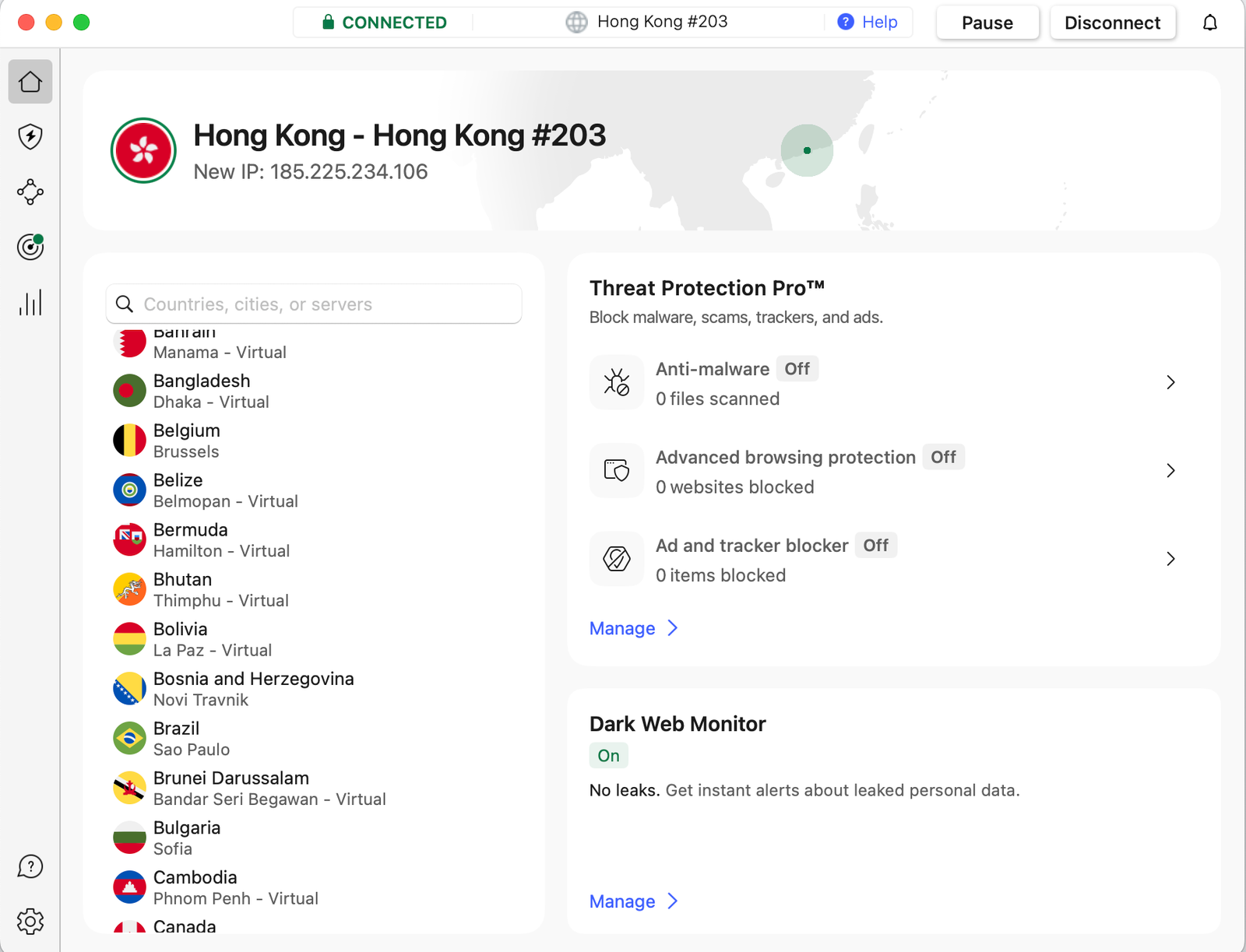
If you want the VPN equivalent of a Swiss Army knife—something loaded with tricks for every digital obstacle—NordVPN is it.
Key Features
- Obfuscated Servers: These are the secret sauce for China. You pick “Obfuscated Servers” in the NordVPN app, and your traffic gets a makeover, so the GFW thinks it’s just regular encrypted web browsing.
- NordLynx protocol: Their own spin on WireGuard—fast, secure, and less likely to get stuck or dropped.
- NordWhisper protocol: If things get really dicey, this protocol is designed specifically to hide even deeper.
- Panama-based, audited no-logs policy: They don’t keep track of what you’re doing, and independent audits back that up.
- Huge server network: 8,000+ servers, including plenty close to China, which keeps speeds up and lag down.
How It Actually Works in China
Most expats and travelers who prepare ahead swear by NordVPN’s obfuscated servers. It’s fast enough for YouTube (with the right server), calls on WhatsApp or Zoom work, and you can even get your usual Netflix or Spotify fix.
That said, NordVPN is a big target—sometimes the GFW blocks a bunch of their servers in waves. NordVPN is pretty quick to add fresh ones or adjust, but expect occasional hiccups (especially around Chinese holidays or political events).
How to Set Up NordVPN for China
- Before you go: Download the app on every device (don’t leave this until you arrive). Try NordVPN – 77% off
- In the app, select “Settings” → “Connection” → pick “NordLynx” protocol.
- Under “Specialty Servers,” choose “Obfuscated.”
- If you hit a wall, switch to “NordWhisper” or try a different Asian server location.
- Turn on the kill switch.
Price & Value NordVPN
- Starts at $3.09/month (with a two-year deal).
- 30-day money-back guarantee.
Real User Feedback
- Reddit and forums: Most users rate NordVPN as “solid but sometimes spotty.” If you’re using it as your main VPN, have a backup just in case.
- If you want the best mix of power, privacy, and flexibility, it’s a top pick.
2. ExpressVPN — The Easiest, Most Reliable Option
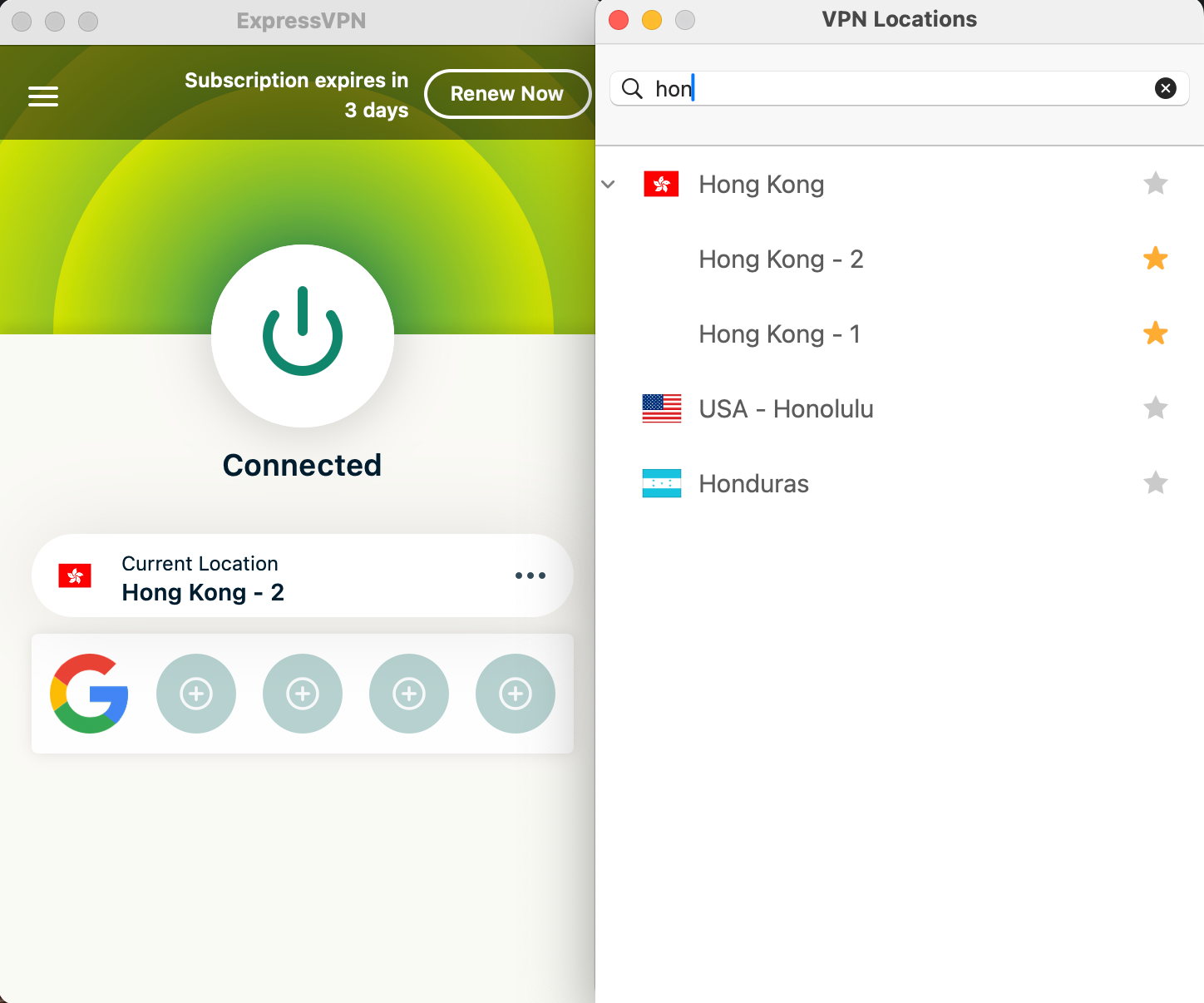
If you just want something that works—no fiddling, no tech headaches—ExpressVPN is the old faithful of China VPNs.
Key Features ExpressVPN
- Automatic obfuscation: You don’t have to do anything; ExpressVPN senses censorship and hides your traffic on its own.
- Lightway protocol: Their custom protocol is designed for speed and for bouncing back quickly when connections drop (which, in China, happens).
- Server network: 3,000+ servers worldwide, with strong options in Hong Kong, Tokyo, Singapore, and more.
- Strict no-logs policy: Audited and trusted.
- Network Lock (kill switch): Keeps you protected even if the connection drops for a moment.
How It Actually Works in China
ExpressVPN’s main strength is reliability. It’s been the gold standard for years. When others get blocked or start lagging, ExpressVPN usually still gets through. The interface is dead simple, which is a blessing if you’re not techy (or you’re helping family members who aren’t).
It’s also great at providing alternate download links and support pages you can access inside China—super helpful if you need to reinstall or get support on the ground.
Downsides? The GFW sometimes targets ExpressVPN aggressively, especially around “sensitive” dates. If you get booted off a server, just try another. The 24/7 chat support is also worth its weight in gold.
How to Set Up ExpressVPN for China
- Download and install ExpressVPN on every device before you enter China. Try ExpressVPN – 61% off
- In the app, choose “Automatic” protocol.
- Enable “Network Lock” (kill switch).
- That’s it—just connect to a nearby Asian server, and you’re good.
Price & Value ExpressVPN
- Starts at $4.99/month (annual plan).
- 30-day no-questions-asked money-back guarantee.
Real User Feedback
- Reddit, forums, travel groups: Most travelers stick with ExpressVPN as their main China VPN.
- “Set and forget” simplicity is a winner, especially if you’re new to VPNs.
3. Surfshark — The Best Budget-Friendly Pick
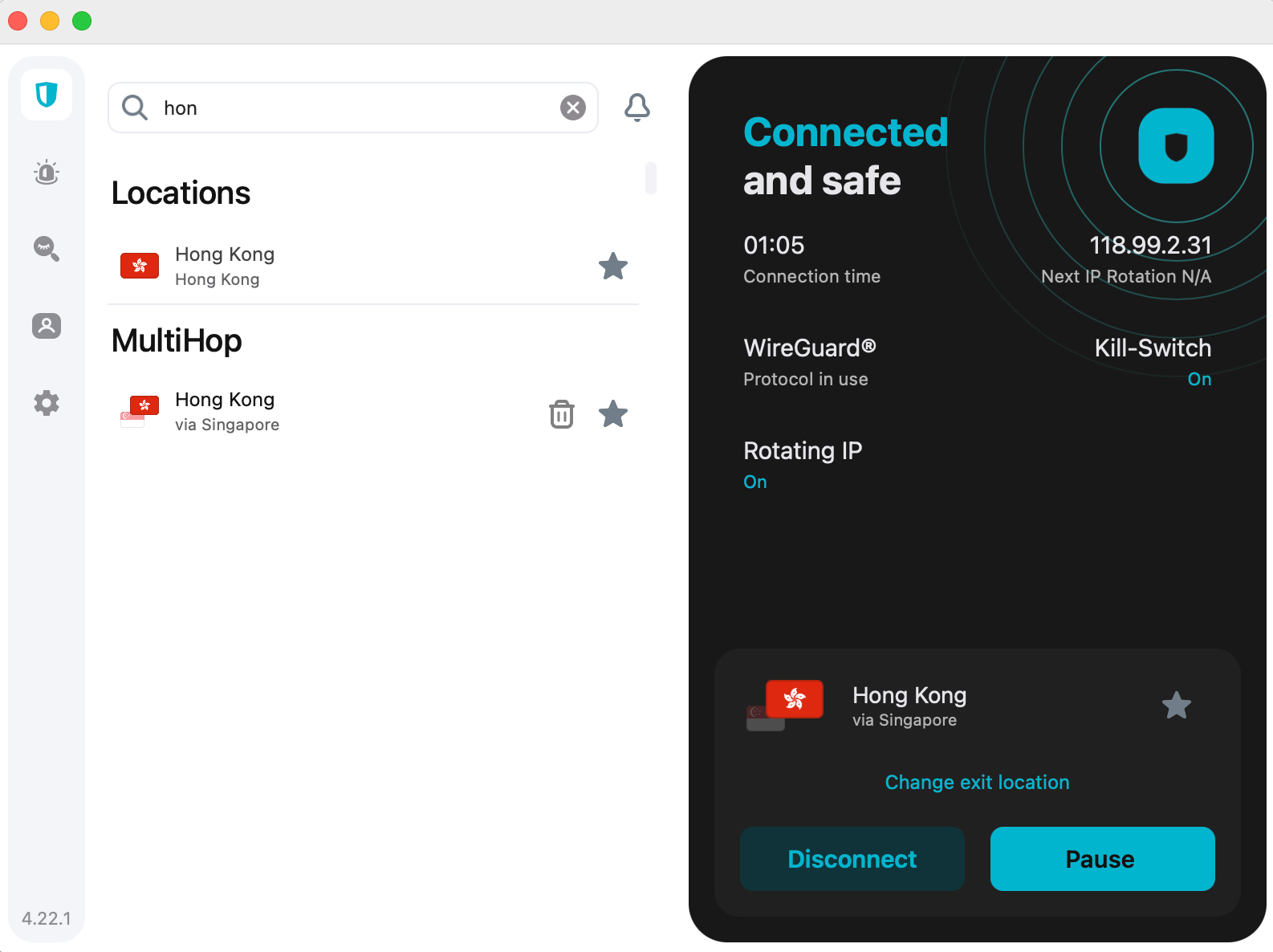
Traveling with a bunch of devices? Or need to cover your family or travel group on one subscription? Surfshark is hands-down the best value.
Key Features Surfshark
- Camouflage Mode: Obfuscation that hides VPN traffic whenever you use the OpenVPN protocol.
- NoBorders Mode: Detects internet restrictions and gives you a list of servers designed to break through them.
- Unlimited devices: Seriously, you can connect your laptop, phone, tablet, and even your grandma’s smart fridge.
- No-logs, audited: Same level of privacy you’d expect from the big names.
- Strong Asian server lineup: Hong Kong, Japan, Singapore, Taiwan.
How It Actually Works in China
Surfshark is a bit more hit-or-miss than ExpressVPN or NordVPN—some users rave about its consistency, others run into connection drops or slower speeds.
It’s definitely not as bulletproof, but for most casual users, it gets the job done, especially for messaging, email, and general browsing. If you need rock-solid performance 24/7 for work, maybe keep it as your backup.
How to Set Up Surfshark for China
- Install before you arrive. Try SurfShark – 87% off
- Go into advanced settings and pick “OpenVPN (UDP)” or “OpenVPN (TCP).”
- Enable Camouflage Mode and NoBorders Mode.
- Use Asian servers closest to you.
Price & Value Surfshark
- Starts as low as $2.19/month (long-term plans).
- 30-day money-back guarantee.
Real User Feedback
- Forums: “A steal for the price.” Just be ready to switch servers or try another protocol if things get weird.
Quick Comparison Table Best VPN for China
| VPN | Key China Feature | Real-World Verdict |
|---|---|---|
| NordVPN | Obfuscated / NordWhisper $3.39/month 30-day money-back 6 devices | Very strong, sometimes blocked |
| ExpressVPN | Auto-Obfuscation / Lightway $4.99/month 30-day money-back 8 devices | Most reliable, super easy |
| Surfshark | Camouflage / NoBorders $2.19/month 30-day money-back Unlimited devices | Best for budget, some dropouts |
Setting Yourself Up for Success: What You MUST Do Before You Go
The golden rule: Download and set up your VPNs before you land in China. Once you’re there, even accessing VPN websites is nearly impossible. Follow these steps to keep your sanity:
- Subscribe to at least two VPNs (ExpressVPN and NordVPN, or add Surfshark for value).
- Install apps on every device you’ll use—laptop, phone, tablet.
- Log in and activate your subscriptions.
- Pre-configure the settings: enable obfuscation/stealth, set recommended protocol, and turn on the kill switch.
- Save support contact info and alternate download links (take screenshots, email them to yourself, or keep them in your notes app).
- Consider buying a travel eSIM for instant mobile data that might bypass some blocks (but don’t rely on it for your laptop or all work tasks).
When Your VPN Isn’t Working (And What to Do)
It happens to everyone, even pros. If you suddenly can’t connect, don’t panic—try these tricks:
- Switch to another server in a nearby country. (If Japan’s down, try Taiwan or Singapore.)
- Switch VPN protocols in the app settings.
- Restart the app or your device.
- Check your kill switch is on.
- Use your backup VPN.
- Contact customer support via your saved links or emails. Most good VPNs have 24/7 help for these exact moments.
Are VPNs Legal in China? (And Should You Be Worried?)
Here’s the straight talk: Officially, only government-approved VPNs are “legal”—but those have surveillance built in. For regular travelers and expats, using a personal VPN for accessing global services is tolerated, not criminalized. The “worst” you might face is being asked by police to delete the app (rare, but possible during sensitive times).
What you absolutely should not do is promote, sell, or share VPNs inside China. For visitors, keep a low profile, don’t post political content, and use your VPN quietly. You’ll be fine.
Why “Free” VPNs Are a Horrible Idea for China
This isn’t the time to cheap out. Free VPNs just don’t have the resources to fight the Great Firewall—they get blocked almost instantly, and some are owned by shady companies with links to China. Plus, most make money selling your data. The risk is simply not worth it.
Final Checklist (Don’t Skip This!)
- Pick two VPNs (ExpressVPN + NordVPN, or add Surfshark)
- Install on every device before departure
- Log in, activate, pre-set for China use
- Save all support links offline
- Consider eSIM/mobile backup for extra resilience
With this setup, you’ll be free to roam, post, work, and stream—no matter how fierce the Great Firewall tries to block you.
Pro Tips and FAQs
Can I get a VPN after I land in China?
Highly unlikely. Download and set up everything before your trip.
Will these VPNs work forever?
The Great Firewall evolves. That’s why having a backup VPN and access to customer support is key.
Can I use these VPNs on all my devices?
Yes. ExpressVPN covers up to 8, NordVPN 10, and Surfshark is unlimited.
Is mobile data blocked too?
Yes, local SIM cards are subject to the same censorship. eSIMs with international data sometimes get around this, but don’t count on it for everything.








